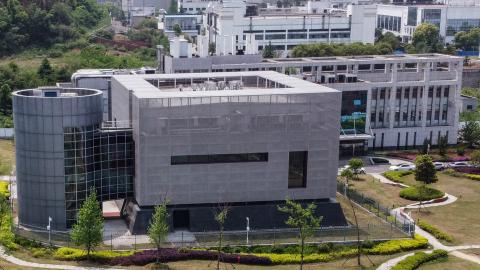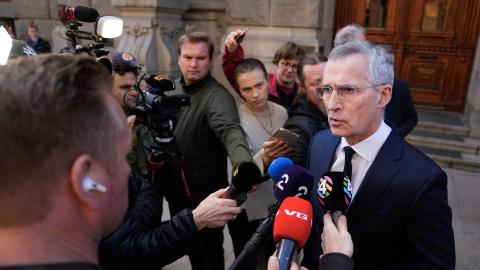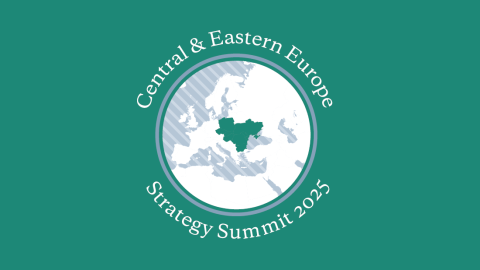We should not credit China for mitigating the spread of COVID-19, but we should highlight the successes of Taiwan, Hong Kong, and Macau. There are others who have done well, including Singapore and South Korea, but due to their proximity to China the other three are especially impressive.
Every step of the way, Beijing has been dishonest to its people and to other nations affected by a pathogen that originated in Wuhan, China. In early December, merchants at the Hua’nan wet market fell ill, and when Chinese doctors alerted their superiors of a new, mysterious virus, the government accused the doctors of lying and muzzled them. Dr. Li Wenliang famously alerted his peers of the virus and was then taken into police custody. Li, only 34 years old, eventually succumbed to the virus.
According to a Wall Street Journal report, President Xi Jinping personally ordered officials to control the outbreak on Jan. 7. But the Chinese Communist Party continued to insist it was impossible for the virus to spread from person to person. Again, with Xi at the helm and knowing how bad this disease was, officials green-lighted the massive Chinese Lunar New Year banquet in Wuhan, the capital of Hubei province. Xi also bears the responsibility for permitting 5 million people to leave Wuhan untested.
The abysmal failures and lies pile up even higher than that, from destroying evidence, denying access to the Centers for Disease Prevention and Control and the World Health Organization, and disappearing those courageous enough to criticize the government’s handling of the virus. Now Chinese leaders are shamefully and transparently trying to spread the lie that the virus came from the United States.
As shocking as Xi’s inaction, silencing, and lying about the pandemic are, the draconian ways the authorities treated the Chinese people during its record-breaking quarantine is material for horror movies. Some of the videos that went viral on social media showing abusive treatment of individuals presumably the authorities believed to have been exposed to COVID-19 remain publicly unverified, but trusted analysts told me the videos corroborate the kinds of stories they heard about from on-the-ground sources all over China.
Contrast China’s patterns of abuse, cover-ups, inhumane treatment of the Chinese people, and blatant disregard for infecting others to the effective and humane work in Taiwan, Hong Kong, and Macau. The three are different in important ways, including in geography, population size, socioeconomically, and culturally.
Hong Kong and Macau technically have autonomy from mainland China but have been governed by the dubious principle of one country, two systems since 1997 and 1999, respectively. Taiwan is, of course, a self-governing republic, and with its recent election of President Tsai Ing-wen on January 11, 2020, with a whopping 57 percent of the vote, rejected closer ties with the Chinese Communist Party.
All three have very different degrees and measures for pursuing the following strategies, and to be sure, some of the measures will cause Americans to bristle and would challenge the U.S. Constitution. But considering their proximities to China, it is remarkable that their governments and cooperative citizens blunted the first wave of the virus so effectively and so much more humanely than the CCP.
Their governments very clearly learned the hard lessons of the 2003 Severe Acute Respiratory Syndrome, or SARS, and implemented their devised plans. They moved aggressively to protect their people, closed or severely restricted travel of those coming and going to China in January (and would no doubt done so sooner had Xi’s China been forthcoming with the information back in November or December), diligently tracked and recorded the whereabouts of those who tested positive with the virus, and communicated clearly and regularly with their citizens, who complied with the hygiene and social distancing instructions.
In Macau, a former Portuguese colony with only 600,000 residents, authorities took the principle of removing infected people and people from Hubei, China and applied it rigorously. The authorities went so far as deporting individuals who were visiting from Hubei, while another group of individuals from Hubei opted for strict quarantine and were permitted to do so.
Hong Kong, with a population of 7 million, had a phased border closure to China, and a remarkably strong community response involving social distancing, a stunning drop in the use of public transportation, regular voluntary temperature checks at businesses, which turned down compliant patrons if their temps were too high, and complimentary and prolific hand sanitizer. To preserve their success of limiting the outbreak, they are implementing a mandatory 14-day quarantine to anyone arriving at their borders.
In Taiwan, a population of 23 million, citizens were threatened with heavy fines for knowingly putting fellow citizens at risk. As reported, one man didn’t tell the authorities he had symptoms after he returned from Wuhan and went to a dance club. The Taiwanese government slapped him with a $10,000 fine.
The government’s measures have deservedly helped President Tsai Ing-wen’s approval rating. Between the Taiwanese COVID-19 response and the Taiwanese election, the Taiwanese people have demonstrated they recognize the dangers of a deadly pathogen as well as the dangers of Xi’s CCP.
We have a geographically large nation, with a population that dwarfs the others mentioned. We also treasure our civil liberties and aren’t going to sign up to permit the government to track our movements, but we can learn from the principles applied by Taiwan, Hong Kong, and Macau.
We can do a better job of calmly and graciously communicating to our friends and family members that we must take this matter deadly seriously, for ourselves and our neighbors. Reject the caricature of the American rugged individualist who relishes in rejecting wise counsel.
It is not un-American to heed wisdom, to look outward, towards the well-being of our community; quite the opposite, in fact. A democratic republic with maximum room for decision-making at the local level only works if families take their care and the care of others to heart.
With that in mind, we can take cues from Hong Kongers and others and do a better job of isolating ourselves and our families, avoiding public transit and densely populated areas. We might not have an abundance of testing kits, but we do have thermometers and can check our own temperatures and remind others to do the same. More businesses can offer sanitizer at the checkout counter.
The Trump administration is taking more drastic measures to slow the virus and relieve the economic pain on business and workers while communicating more regularly. Perhaps most importantly, the federal government was right to stop travel from China early.
But as we adapt as new information comes in as more testing kits are used, we should also fine-tune how we talk about this global pandemic. Media and U.S. government officials must be careful to eschew any kind of praise of the Chinese government for anything it’s doing related to the COVID-19 pandemic. Xi’s CCP is the reason this global virus is as bad as it is. Let’s highlight the good work of the people handling it responsibly, humanely, and cooperatively.
Read in The Federalist



















